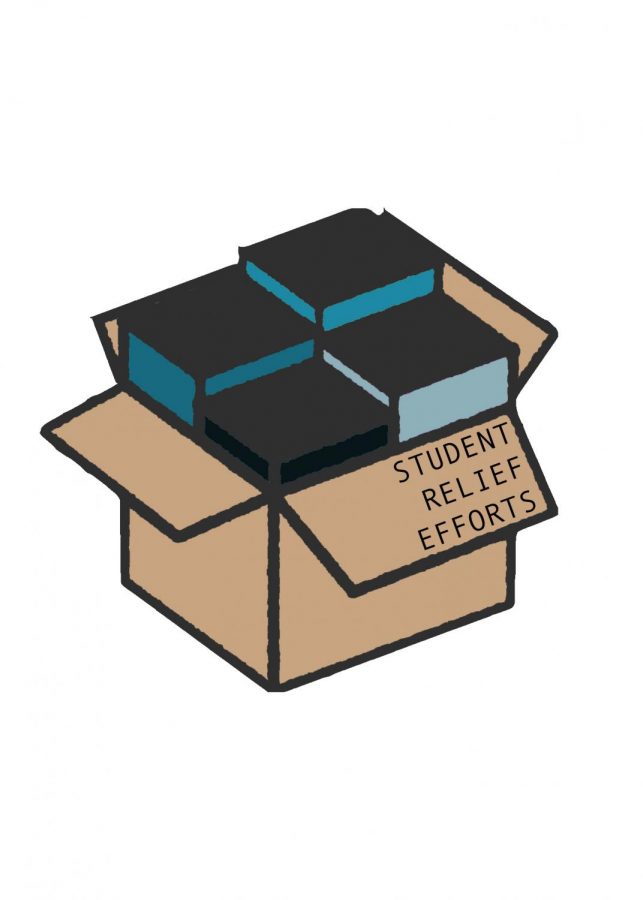SLU Community Remains Strong Amidst COVID-19
Over the past few weeks, the entire community at Saint Louis University has been affected by the outbreak of COVID-19 in dramatic and unprecedented ways. Students have left their dorm rooms and apartments, faculty have moved courses online, study abroad programs have been canceled and internships, on-campus jobs and various extracurricular activities have come to a halt. In short, there is not a person at SLU who has been spared from the repercussions of the virus.
Yet, as is always the case in crises of this nature, there are invariably segments of our community which are more vulnerable to the devastating side effects that accompany attempts to slow the spread of the virus.
For those members of our community experiencing housing and food insecurity, shelter in place and other isolation measures pose unique obstacles. The economic consequences of suspending on and off campus jobs should not be underestimated, however necessary these measures are in slowing the spread of the virus. For some students, the transition to online classes is a mere inconvenience. For others, the transition to off campus learning poses new challenges, from a lack of reliable internet connection or a suitable work environment, to an increased load of home responsibilities that leaves little time to deal with the demands of a full course load.
The harsh reality is that, contrary to what some have said, the virus is not a “great equalizer.” Material realities determine which segments of our community are hit hardest, both by the virus itself and our efforts to slow its spread. Knowing that to be the case, it is vitally important that the SLU community, a community committed to caring for the most vulnerable among us, remains strong in the face of adversity.
A few weeks ago, President Pestello reminded the SLU community of St. Ignatius, and the first Jesuits saw themselves as a communitas ad dispersionem, a community in dispersion. Even as their ministry took these close friends across the globe to face uncertain fates, they remained united in their vocations and connected through prayer and the exchange of letters.
Even as events took drastic turns quicker then most of us could keep up with, our own SLU community began to resemble the communitas ad dispersionem inspired by our Jesuit forefathers.
One of the prevailing themes has been an inspiring sense of solidarity among our dispersed but tight knit community. Almost immediately after the notice went out that classes were canceled and students were advised to stay home, a SLU Student Needs Response sheet went live and quickly spread. The document was created to coordinate relief efforts efficiently and democratically, and was a vital step in fostering a sense of solidarity in the midst of uncertainty and hardship.
There is a section for housing, creating a space where individuals with extra room at home or an apartment for rent are put in contact with those who might be displaced or otherwise unable to safely return to a permanent place of residence. Those in need of food are linked with those with extra food and those willing to provide a seat at their table. Others in need of transportation, whether it be to the supermarket or to a city hundreds of miles away, can get in contact with students who have an extra seat in their car.
The Student Needs Response form, launched almost immediately after it became clear just how disruptive the virus would be to campus operations, was just the beginning of creative and innovative efforts to sustain the SLU community in spite of physical separation.
In the weeks that have followed, our dispersed community has continued to strengthen. In an email to the student body, the Interim Vice President for Student Development, Debie Lohe, emphasized the importance of maintaining the health of both ourselves and our community, noting in particular “COVID-19 will disproportionately impact the most vulnerable among us” and that the vitality of our community is inextricably reliant on maintaining the bonds of community.
On March 20, President Pestello announced that students are to receive 50 percent refunds for housing and dining, and student workers are to be compensated in some capacity, whether or not they are able to continue work. Not only will these measures help mitigate some of the economic side effects of COVID-19, there is opportunity to, as Pestello put it, “do what Billikens do: take care of one another” by donating refunds to designated funds like Billiken Bounty, the Student Emergency Relief Fund or SLU’s “Helping Our Own Fund,’ which gives emergency funding to SLU faculty and staff.
The Center for Service and Community Engagement has compiled a list of ways that members of the SLU community can serve one another and those in the wider St. Louis community while still abiding by official safety precautions, including phone calls to homebound senior citizens, advocacy work and bagged lunch preparation. The list, which can be found on the CSCE website, also includes opportunities to provide child and pet care for healthcare workers at SLU Care and SSM, and to engage with youth education programs. Technology allows the SLU community to continue to flourish in other ways, including weekly live streamed masses from St. Francis Xavier College Church, as well as through an abundance of other virtual meeting spaces.
These resources and opportunities, along with the ones that might be created in the coming weeks, ensure that as the next few weeks of uncertainty and hardship unfold, the SLU community is well prepared to maintain a robust sense of solidarity, fostering a communitas ad dispersionem equipped to weather the storm and emerge stronger than before.
Your donation will support the student journalists of Saint Louis University.





